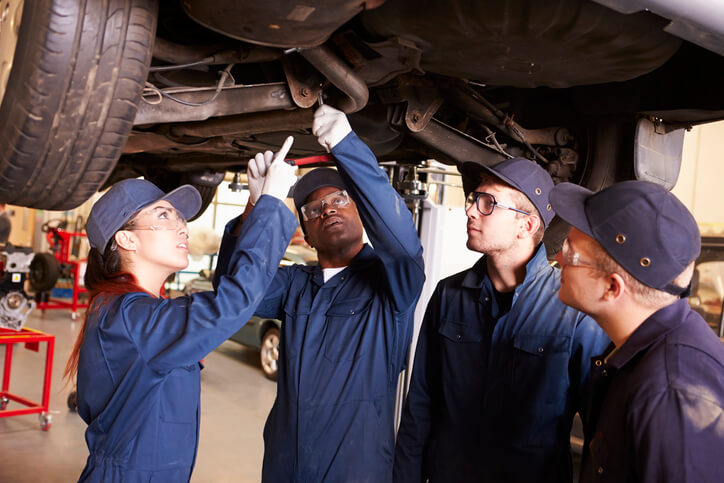How To Succeed During Your Apprenticeship After Diesel Mechanic Training
Transitioning from the controlled environment of a classroom to the bustling setting of a repair shop can be exhilarating and challenging for diesel mechanics. The apprenticeship phase post diesel mechanic training is a critical juncture where theory encounters practical application, setting the foundation for a successful long-term career in this sector.
Diesel mechanic apprenticeships are designed to refine the technical skills acquired during training and to introduce apprentices to the real-world scenarios they will encounter in their professional lives. As an apprentice, mastering specific technical and interpersonal skills can significantly boost one’s prospects of success in this demanding field.
Mastering Technical Proficiency and Adapting to Industry Advancements After Diesel Mechanic Training
Central to a successful apprenticeship is the relentless pursuit of technical excellence. As a diesel mechanic apprentice, gaining a deeper understanding of diesel engine components, electronic systems, and hydraulics is paramount.
Practical skills such as diagnosing mechanical issues, performing preventive maintenance, and mastering diagnostic software and tools are crucial for making a positive impression on employers and mentors. Embracing the opportunity to work on various diesel engines and vehicles, including trucks, buses, and construction equipment, will foster a broader understanding and versatility in handling various mechanical challenges.

Additionally, the industry is fast evolving with the adoption of sophisticated technologies like emission control systems, advanced diagnostics, and computer-controlled systems, which require a mechanic to update their knowledge base continually. Being proficient in the latest diesel technology and regulations, including EPA emission standards, is a significant asset. Hence, it’s indispensable to stay updated with the latest advancements and be adept at utilizing modern tools. This would not only enhance efficiency after diesel mechanic training but would position the apprentice favorably in the eyes of employers.
Cultivating Professional Relationships and Demonstrating Workplace Competence
While technical prowess after diesel mechanic courses is crucial, fostering good relationships within the workplace is equally important. Effective communication with supervisors, peers, and clients is essential for ensuring tasks are completed accurately and timely. Clearly articulating issues and solutions, particularly when explaining technical details to a client who might not have a mechanical background, is a skill that sets apart competent mechanics.

Moreover, developing a reputation for reliability, integrity, and professionalism is beneficial in establishing a solid footing in the industry. Being proactive in taking on new tasks, adhering to safety protocols, and showcasing a problem-solving mindset in challenging situations are qualities that employers value greatly.
Maintaining a receptive attitude towards feedback and adapting to different styles contributes to a harmonious working environment and personal growth.
Are you looking for a world-class auto mechanic school?
Contact CATI for more information.

